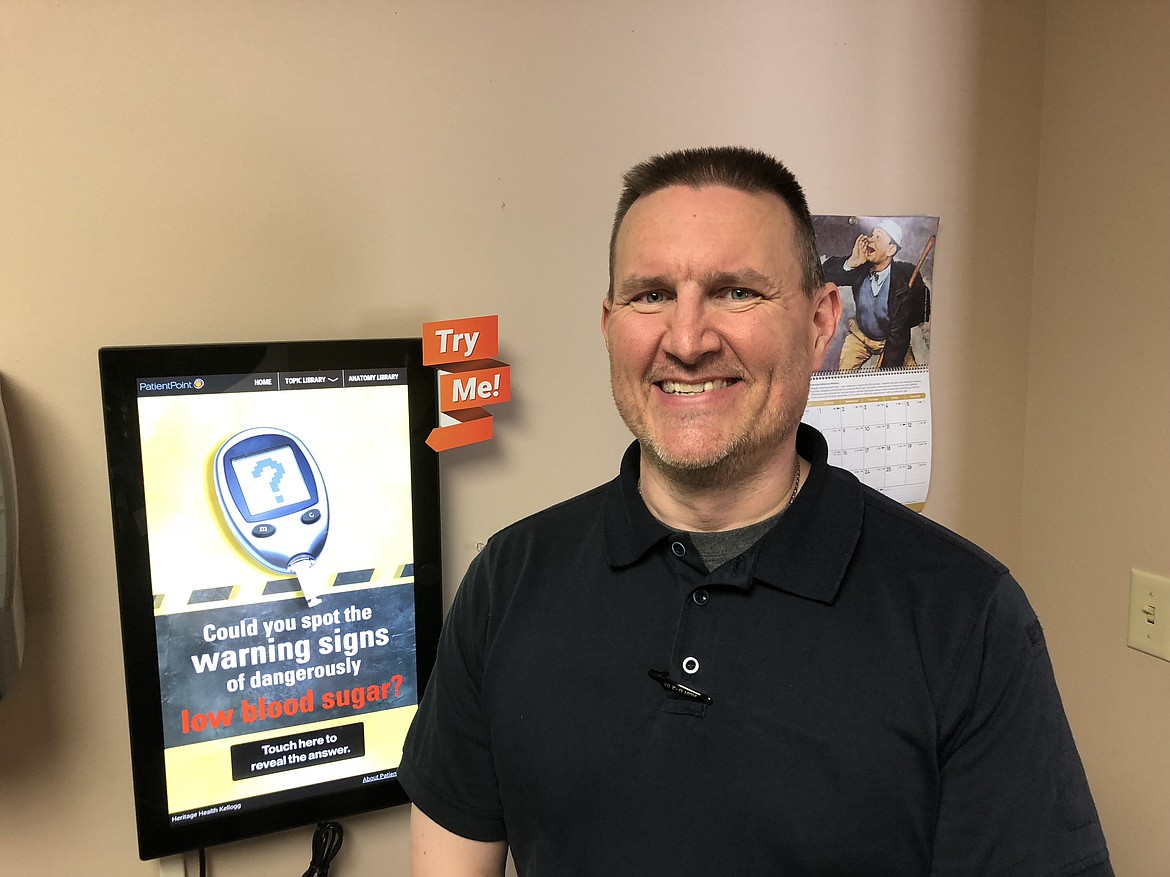The long road to Kellogg
Some people go from point A to point B to achieve their career goals. In the case of Sean Meyer, it’s more like going from point A to point C to point B.
The story of how Meyer became a Family Nurse Practitioner working in the Silver Valley is complicated, to say the least. He grew up in a small southeast Nebraska town and his mother was a nurse. Medical books were commonplace throughout the home.
“I fell into medicine and I took a complicated path to get here,” said Meyer. “Growing up, I had no interest in medicine. I was much more interested in engineering and science.”
In 1992, while serving in the National Guard, Meyer went to the Army’s Medical Specialist course and became a medic. It was here he discovered his love of medicine, so he decided to pursue it as a career.
The passion for medicine led him to the University of Houston where he earned a degree in Biological and Physical Science and a minor in Industrial Chemistry. He then went on to earn his nursing degree from Creighton University in Nebraska.
He was on his way to saving lives.
Meyer worked in an intensive care unit for four and a half years in Galveston, Texas. From there he moved to Denver to take another ICU job.
After logging thousands of hours in the hospital, Meyer decided he needed a change of pace from the high-stress conditions of an ICU. Seeing people die horribly, often all alone, made him rethink what he was doing.
He felt driven to help people extend their lives and, to accomplish that goal, he went back to school again. Meyer earned a Nurse Practitioner Degree from Regis University in Denver, Colorado. After graduation, he took
a job with Heritage Health.
“I love it here,” said the Pinehurst resident. “I feel like a part of the community. I am here to help my fellow Silver Valley residents. I like helping people feel better obviously.”
Meyer’s hobbies include riding motorcycles, hiking, swimming and fishing.
“I am a bit of a tech junkie too,” said Meyer. “I read a lot.”
“I am helping prevent chronic conditions from progressing to be bad enough to where the patient ends up in the ICU,” he said. “I also feel it’s important to educate patients and make them part of the healthcare process, to empower them and to give them the tools they need to facilitate their own health.”

